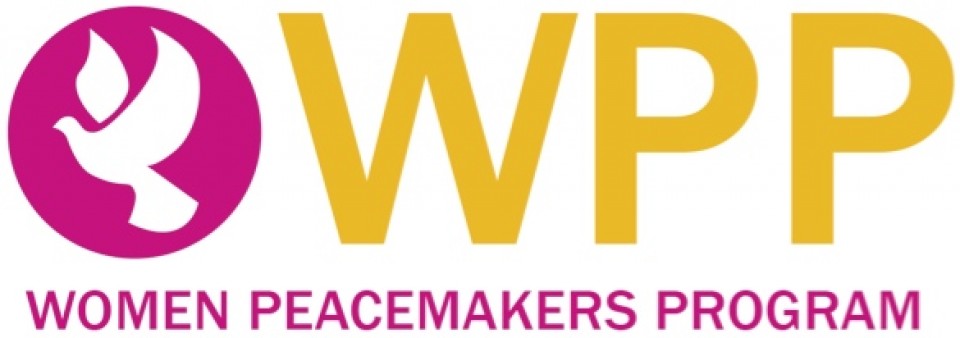The past few years, the Middle East has witnessed an incredible amount of changes. The energy and the hope, generated by the people’s uprisings during the Arab Spring, came hand in hand with insecurity and instability in the region. The Middle East is amongst one of the least peaceful regions in the world, with the drop in rankings for the Arab countries reflecting the turbulence since the Arab Spring(1). The military spending in the Middle East rose by 8,4 per cent in 2012 to $138 billion (2).
In this highly militarized and conflict-ridden region, an excessive amount of discrimination and violence against women is taking place. While women have been on the forefront during the Arab Spring demonstrations, they faced sidelining and undermining of their rights during the aftermath of it. For example, sexual harassment has risen tremendously in Egypt.
CSO’s and women have been working for years to advance the position of women in the region. Recently, some human and women’s rights groups realized that a different strategy might be needed to strengthen their work for gender equality. In this highly patriarchal region, discussions have started about the role men can (and should) play in ending violence against women and eliminating gender inequality.
One of the forerunners in these discussions is the Lebanon-based group ABAAD – Resource Center for Gender Equality. Since 2011, the WPP has been partnering with ABAAD for its regional capacity building program in the Middle East, which included a regional Training of Trainers Cycle on masculinities and gender-sensitive active nonviolence (GSANV) and the organization of a consultation meeting to explore the relevance of regional networking for GSANV in the region.
On 10th and 11th April 2013, the WPP participated in a pioneering international seminar, organized by ABAAD, entitled “Masculinities and Ending Violence against Women in the Middle East and Abroad”. Participants came from Lebanon, Palestine, Iraq, Jordan, Morocco, Egypt, Nicaragua, Sweden, South Africa and the USA to share their experiences and reflections on the topic. ABAAD shared its innovative and groundbreaking work on masculinities and ending violence in the region, including the establishment of a center for men in Beirut, as well as its work with religious leaders and youth in Lebanon.
The cultural meanings of being a “real man” in different cultural contexts as well as how societies teach their children to become women and men around the world were discussed during the meeting. Guest speakers Gary Barker and Oswaldo Montoya of Promundo and MenEngage, and Dean Peacock of Sonke Gender Justice Network offered insightful experiences from Brazil, South Africa and Nicaragua. Through audio and video material, they shared examples of male change makers who challenge the connection between violence and masculinities: men who refuse to abide by masculine norms that equate being a man with being strong, powerful, heterosexual, successful, and entitled to privileges over women. Change makers who don’t believe that men may use violence towards women, children, or other men if those people do not live up to social norms or if the men feel that they are being challenged.
During the seminar, participants were invited to discuss if and how they could engage men in their own work, and what kind of challenges and obstacles they face in doing this in their own context. The potential of and the need for engaging men in the region was highlighted by the participants. The various Arab male participants shared insights from their own experiences in the region as male change makers speaking out against violence against women. A Jordanian male activist shared how he clearly notices in his work that Arab culture “applauds women who stay calm while being subjects to violence, women who are patient and don’t speak out against it”. He shared how he encourages his female students to speak out when they are violated – in contrast to cultural expectations – because “nobody should stay in a pattern of violence”. The specific and strong role religious leaders play in the region was highlighted by various participants also.
At the closing comments, one participant reiterated the words of Palestinian poet Mahmoud Darwish – the interconnectedness of the jailer and jailed and the sense that their destinies are inextricably – and related this to how women’s and men’s roles are linked and how both are ‘ victims of socialization’.
Future plans
To be able to share thoughts with people from so many different countries was an enriching experience. Participants emphasized the need to analyze the different strategies discussed – including the use of art, media and social media, and the collection of clear social, cultural and health data on the benefits of gender equality for men and boys, women and girls – and to strategize on how these can be adapted and used in our own context.
All the participants expressed a strong willingness to continue the discussions and networking in order to advance the work of engaging men in the MENA region. The WPP is looking forward to continue her work in the region with the various partners!
Next month, from 26-29 May, the WPP is organizing an Global Consultation meeting in The Hague, with several of its partners in the field of GSANV and masculinities coming together to discuss the impact in the field, as well as design a long-term strategy to continue this important area of work in upcoming years.
Early 2014, the WPP will organize another MENA Consultation to analyze specific needs in the region and decide collaboratively on a strategy to advance the work of gender sensitive active nonviolence in the region.
Please keep an eye on our website and Facebook for the latest updates!
Website of ABAAD: http://www.abaadmena.org/
———–
1 Source: http://www.guardian.co.uk/news/datablog/2012/jun/12/global-‐peace-‐index-‐2012
2 Source: http://www.sipri.org/media/pressreleases/2013/milex_launch
